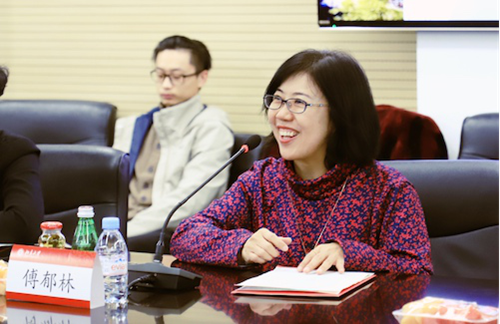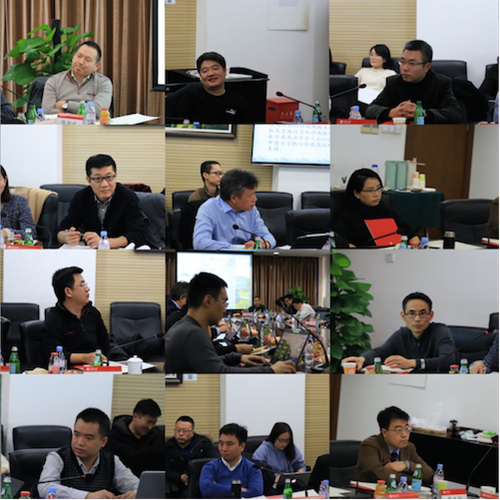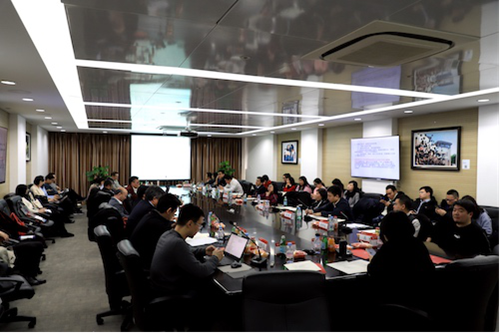Peking University-King & Wood Mallesons Insight of Dispute Resolution Theme Salon (Phase 2): Summary of "Implementation and Non-execution of Arbitration Awards"
Date:2019-02-25
1. Salon background
On the afternoon of January 5, 2019, the second phase of Peking University- King & Wood Mallesons Dispute Resolution Research Salon was successfully held in Room 303, (Leo) Koguan Building, PULS. The Insights Salon held by Civil Procedure Law of PULS, and funded by King & Wood Mallesons. About the theory and practice issues surrounding civil and commercial dispute resolution, the academic, judicial, arbitration, practicing lawyers and even the business community have different opinions. The problem is observed and discussed, and gradually promote the formation of a community of legalists with both legal thinking and social care.
The theme of this year's salon is "Implementation and Non-execution of Arbitral Awards". Professor Xiao Jianguo from Law School of Renmin University of China and Deputy Director of the Beijing Higher People's Court Lei Yunlong were invited as keynote speakers, other experts from different fields also attended.
Fu Yulin, the host of the salon and professor of PULS, expressed her welcome to the guests, introduced the background, purpose and style of the salon, and briefly introduced the theme of the first salon and this salon. The relevance between the themes, hope to maintain a certain degree of system and continuity in the theme and the arrangement of the participants, so that the research on related topics will continue to advance and gradually deepen.

2. First Report and Discussion
2.1 “False arbitration and application by outsiders not to enforce arbitral award” made by Prof. Xiao Jianguo.

2.1.1 The nature of arbitration award in China
Prof. Xiao Jianguo believes that the arbitral award has certain particularity as the basis of execution. He considers that, according to article 114th of the interpretation of the law of civil Prosecution, the arbitral award does not belong to the document and is not of the same nature as the other documents on which the execution is based.
2.1.2 Review of arbitral awards in the perspective of comparative law
The arbitral award itself is a restricted basis for enforcement and therefore requires a pre-examination to convert the arbitral award into a complete basis for enforcement.
2.1.3 The disadvantages of the mode setting of arbitration award examination in China
Our country does not set up the pre-examination of the specific content in the execution procedure of the internal state arbitration award. In combination with practical cases, Prof. Xiao Jianguo analyzed the phenomenon that the winning object of the arbitral award could not be paid from the beginning and the difficulties of implementation that might arise.
2.1.4 Identification of false arbitration and preventive mechanism of examination
Legal means should be used to regulate false arbitration, and false arbitration and false litigation have similar legal constitutive elements. In the case of arbitration requests, there is a risk of false arbitration in cases involving court seizures and debt servicing of objects.
2.1.5 The relief way and feasibility analysis of false arbitration
Existing laws lack effective relief for outsiders in false arbitration cases, and the feasibility of existing relief routes is questionable.
2.2 Discussion
A number of participating experts expressed their views on the criteria for the classification of documents and private documents involved in the keynote speech, the pre-examination of whether the enforcement of arbitral awards should be set up, the causes of the phenomenon of false arbitration, and the validity of arbitral awards.




3. Second Report and Discussion
3.1 “New thoughts on the enforcement and non-execution of arbitral awards” made by Judge Lei Yunlong
3.1.1 Enforcement of arbitral awards
Enforcement (including preservation enforcement and final execution) is an important support and guarantee for the effective arbitration system. Arbitration preservation divided into pre-arbitration preservation and security in arbitration. The substantive element of the enforceable nature of the arbitral award is whether it has the content of payment and whether the content of payment is lawful, specific and possible. Justice and arbitration are equal relationships, as well as supervisory and supervised relationships.
3.1.2 Non-enforcement of arbitral awards
The vast majority of applications for non-enforcement of arbitral awards were rejected, and the vast majority of arbitral awards were supported in judicial oversight. The arbitral tribunal generally established a good sense of procedure and evidence, and "Arbitration proceedings are contrary to legal procedures" can be summed up in nine situations.
3.2 Discussion
At last, experts discussed the strength and standard of judicial review and other related issues.








Translated by: Shi Jiali
Edited by: Chen Qingqing



